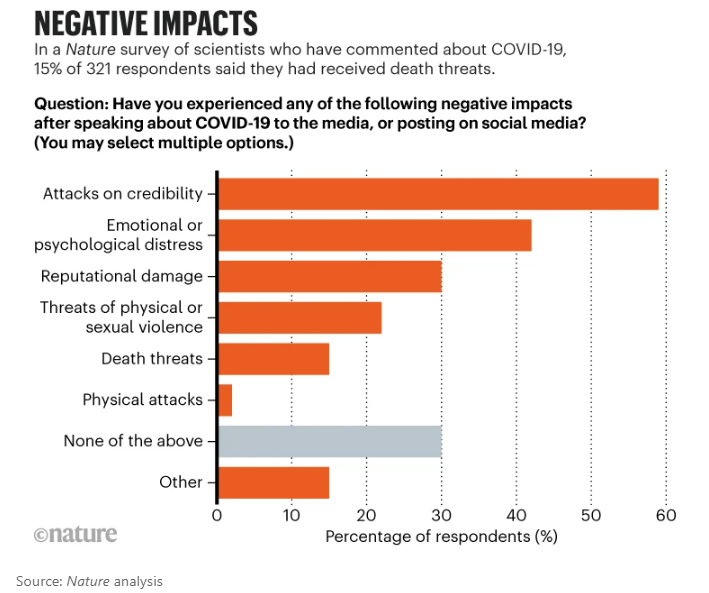
Photo by Yan Krukau on Pexels
Bullying in academia is a serious issue that has emerged as a key stress trigger. Not only does it negatively affect a researcher’s mental health and overall productivity it can also have a disturbingly deep impact on their self-esteem and confidence. Worryingly, a study conducted in 2020 by CACTUS on the mental health of researchers and academics revealed that 37% of the 13,000 researchers and academics surveyed worldwide had experienced some form of academic bullying, intimidation, or harassment at work in their research career.1
Growing incidents of bullying in academia
Academic bullying can take on different insidious forms including verbal, physical, and psychological harassment. Contrary to what many may believe, academic bullying is not only experienced by early career researchers but can be experienced by anyone in the academic community, irrespective of their position or seniority. The growing use of social media has only increased bullying in academia. Online platforms are being used to spread false information, make personal attacks, and create hostile work environments. Academic bullying was particularly visible during the pandemic, with a Nature survey of 321 scientists revealing that 81% faced trolling or were personally attacked after speaking to media about COVID-19.2

Among the reasons for the growing incidences of bullying in academia is the intense competition in the scientific and academic world. Researchers are struggling to compete for limited resources, funding, and job opportunities. This results in an increasingly toxic environment where the end justifies the means and researchers resort to academic bullying to gain advantage over their peers. Moreover, with the increase in the number of researchers and the growing diversity of the researcher pool, many academics find themselves targeted due to their ethnicity, gender, or personal beliefs. Add to this the power imbalance between researchers and their supervisors and a lack of oversight and bullying in academia has become a common occurrence.
The good news though is that there is a growing awareness of the negative impact that academic bullying can have on individuals, including physical and mental health problems and reduced productivity. This awareness has led to increased attention to the issue of bullying in academia and research, and a call for more effective interventions to address the problem. The THINK Academia initiative by CACTUS has been specially designed to raise awareness on academic bullying, provide support for victims, and promote a culture of respect and inclusion in academic communities. But there is more that can be done.
Strategies to help tackle academic bullying
Incidents of bullying in academia are often swept under the rug or attributed to misunderstandings. Researchers feel they need to accept these pressures as part of the role and manage them on their own instead of seeing professional help. However, universities and institutions can employ certain strategies to tackle academic bullying and create a safer, more productive workspace.1
- Create a culture of respect and inclusion within academic and research institutions by promoting diversity and inclusivity, and by fostering a sense of community among faculty, staff, and students. This can be done through training programs and workshops that promote understanding and respect for different perspectives and backgrounds.
- Establish stringent policies to prevent bullying in academia and ensure these are widely communicated and accessible to all members of the academic and research community. There should be stringent guidelines in place not only for reporting and addressing incidents of academic bullying, but also for offering support where required.
- Provide effective mechanisms for addressing and dealing with academic bullying, including an impartial third-party investigator, an ombudsman or an equivalent, or a formal grievance redressal procedure. These mechanisms should be freely available, transparent, impartial, and create a safe and confidential space for individuals to report any academic bullying.
- Offer academic protection and support for affected individuals through regular counselling and mental health services, as well as other forms of support, such as mentoring and coaching. It is important to ensure that all these resources are tailored to the specific needs of the individual and are readily available when needed.
- Raise awareness about academic bullying and its consequences. It is important for people to understand what constitutes bullying in academia and research. Researchers must be able to report incidents without fear and find the support they require when they need it the most. This can be done through active training sessions, workshops, and other interactive programs.
- Create a positive, inclusive, and respectful work environment by encouraging open communication and collaboration, promoting positive interactions, and fostering a sense of community among members of the academic and research community.
- Encourage people to speak out about bullying in academia. This can be difficult, but it is important to let someone know what is happening. You can speak to a supervisor, a colleague, or a counsellor, report the academic bullying to appropriate authorities, practice self-care, and seek academic protection and support.
It is important for everyone in the academic and research community to be aware of the different forms of academic bullying and to take steps to address and prevent it. By creating a safe and supportive environment, individuals can feel confident and empowered to pursue their academic and research goals.
References
- Joy and Stress Triggers: A global survey on mental health among researchers. CACTUS Foundation, 2020. Available at https://foundation.cactusglobal.com/mental-health-survey/index.php
- Nogrady B. ‘I hope you die’: how the COVID pandemic unleashed attacks on scientists. Nature News, October 2021. Available at https://www.nature.com/articles/d41586-021-02741-x


